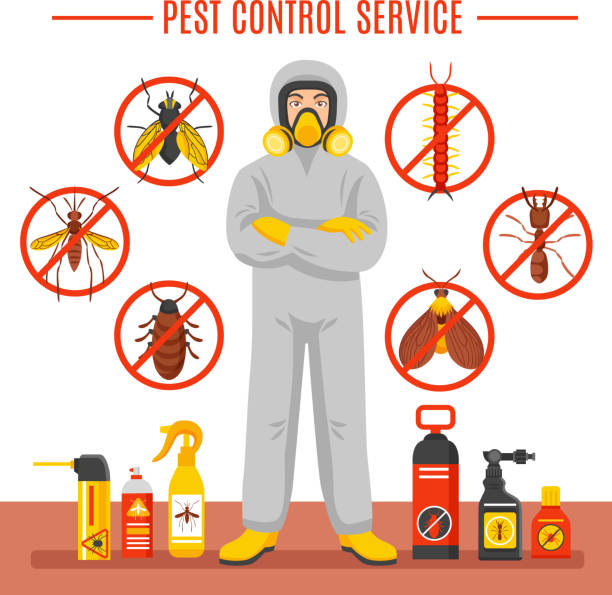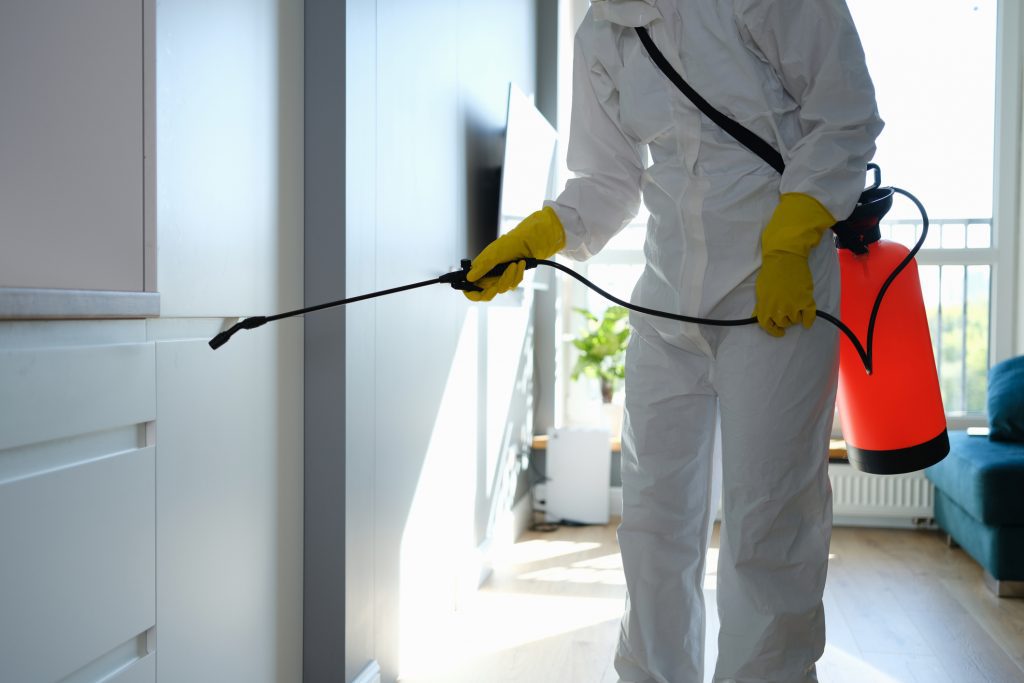Effective Pest Control in Port Charlotte for a safer living space.
Effective Pest Control in Port Charlotte for a safer living space.
Blog Article
Discovering Cutting-edge Strategies and Products for Efficient Parasite Control
The landscape of insect control is evolving, marked by the emergence of innovative methods and products made to boost efficiency and sustainability. From smart traps equipped with advanced monitoring systems to biological approaches that employ natural predators, these innovations offer a standard change in how we come close to pest management.
Smart Traps and Keeping Track Of Equipments
How can modern-day technology improve insect administration? One significant advancement is the development of wise catches and checking systems, which offer real-time data and analytics for reliable insect control. These systems utilize sensing units and cordless technology to find insect activity, informing building managers and parasite control specialists to infestations prior to they intensify.
Smart traps are geared up with features such as lure terminals that bring in bugs and capture them effectively. These catches can be kept an eye on remotely, enabling prompt interventions and decreasing the demand for comprehensive chemical applications. Additionally, the assimilation of device understanding algorithms allows these systems to set apart in between target insects and non-target varieties, improving the accuracy of bug control steps.
Additionally, the information accumulated from smart traps can be evaluated to identify patterns in bug habits and environmental elements adding to infestations (Pest Control in Port Charlotte). This information is indispensable for developing targeted insect administration strategies tailored to certain environments. By embracing smart catches and keeping an eye on systems, pest control professionals can improve their operational efficiency and decrease the eco-friendly impact of pest administration, eventually resulting in safer and more sustainable methods in the sector
Organic Insect Control Approaches
Using natural killers and bloodsuckers, biological pest control techniques provide an ecologically pleasant alternative to chemical treatments. This technique involves the intro or improvement of certain organisms that can naturally regulate parasite populations, therefore minimizing dependence on synthetic pesticides. Typical examples include the usage of ladybugs to control aphid infestations and parasitical wasps to target caterpillars.

Biological control can be categorized right into 3 major approaches: classical, augmentative, and preservation. Classic biological control involves importing natural opponents from the parasite's indigenous environment, while augmentative control entails boosting the population of existing all-natural opponents with releases. Conservation techniques concentrate on developing conditions that support these valuable organisms in the community.
It typically calls for a thorough evaluation of insect characteristics and the life cycles of both the parasites and their all-natural adversaries. As recognition of ecological problems expands, biological insect control approaches are significantly acknowledged for their sustainable function in integrated pest monitoring programs.
Eco-Friendly Chemical Alternatives
Environmentally friendly chemical options give a viable remedy for parasite management that lessens ecological impact while properly managing bug populaces. These options are derived from natural resources and are thoroughly developed to target details parasites without harming useful microorganisms, making them a vital component of lasting pest control techniques.
Among one of the most effective environment-friendly alternatives are plant-based pesticides, such as neem oil and pyrethrin, which are stemmed from the seeds and blossoms of numerous plants. These materials interrupt the life process of bugs, decreasing their populations without the harmful impacts associated with standard pesticides - Pest Control in Port Charlotte. In addition, essential oils like pepper mint and clove oil exhibit repellent homes, further boosting their energy in bug monitoring

Furthermore, environmentally friendly chemical alternatives commonly damage down quicker in the setting, reducing the threat of soil and water contamination. This particular why not find out more aligns with the enhancing customer demand for lasting techniques in agriculture and urban insect control. As research remains to breakthrough, the development of cutting-edge environmentally friendly solutions will additionally improve effectiveness and expand application areas, enabling pest administration specialists to take on greener, extra liable techniques in their techniques while securing human health and the setting.
Scent Disruption Methods
An additional ingenious approach in lasting bug management is the use of scent interruption methods. These approaches exploit the natural chemical signals, or pheromones, that bugs utilize for communication, especially in breeding behaviors. By interfering with these signals, pest populations can be successfully taken care of without turning to dangerous chemicals.
Pheromone traps are frequently utilized in this method. Over time, this can lead to a considerable decrease in insect populaces.

Integrated Parasite Management Strategies
Effective bug control frequently calls for a detailed approach, and Integrated Pest Management (IPM) techniques provide a More Help structure for achieving this goal. IPM integrates various monitoring methods to lessen parasite populaces while decreasing reliance on chemical pesticides. This multifaceted strategy starts with complete monitoring and recognition of insects, permitting targeted interventions based on specific parasite stress.
Social methods, such as crop turning and sanitation, play an essential role in stopping pest facility. Biological controls, including natural predators and parasitoids, are employed to preserve bug populaces at convenient levels. When essential, discerning chemical therapies are applied, highlighting lower poisoning to non-target varieties and the environment.
By using this alternative strategy, IPM not only enhances pest control efficiency however also adds to long-term eco-friendly balance. Inevitably, Integrated Pest Administration stands for a forward-thinking remedy that straightens agricultural performance with ecological stewardship, making it necessary in modern pest control techniques.

Final Thought
Finally, the integration of cutting-edge techniques and products for efficient pest control represents a considerable advancement in lasting pest administration. Smart traps and checking systems, biological insect control techniques, eco-friendly chemical alternatives, and scent interruption methods collectively boost the efficiency of parasite monitoring techniques. By click for more adopting these approaches, the reliance on traditional chemicals can be reduced, advertising environmental health while ensuring efficient insect control. Continued study and advancement in these areas will additionally improve parasite monitoring practices.
Report this page